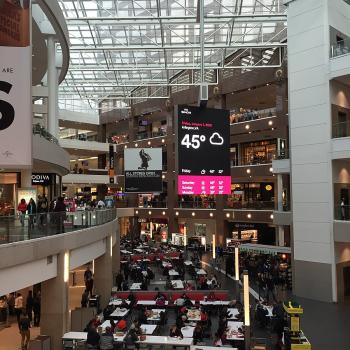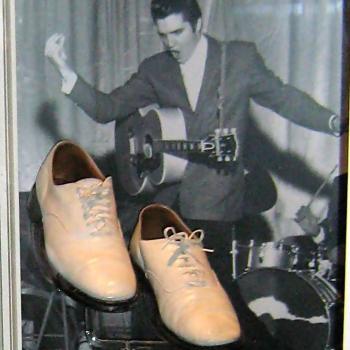A round-up of what I’ve been reading.
“Missouri Considers Lifting Lifetime Food Stamp Ban for Former Drug Felons.”
Missouri is one of 10 states that currently has a lifetime ban on the Supplemental Nutrition Assistance Program (SNAP) for anyone convicted of a drug-related felony, but they could soon be amending their policy.
The harsh ban was part of the welfare reform effort of 1996, but most states have since modified or completely removed the lifetime ban. However, the Missouri Senate has approved a bill for modification and is already gaining bipartisan support in the House.
The consideration for change regarding the food stamp ban is largely due to the lobbying efforts of Christine McDonald. McDonald spent time in and out of the prison system, but has stayed out of jail since 2004. But because of her convictions from over a decade ago, she remains ineligible for food stamps. Her struggle was made even greater by the fact she is a single mother and lost her eyesight in 2006 after declining to take a medication that could have harmed her unborn child.
“You couple finding a job with a criminal record, with having no eyeballs, you’re going to face some societal barriers,” said McDonald. “If I would’ve killed someone, I could’ve gotten food stamps.”
“Looking for Tom Lehrer, Comedy’s Mysterious Genius“:
Many of Lehrer’s fans thought the artist might be dead, a belief Lehrer encourages. (“I was hoping the rumors would cut down on the junk mail,” he told the Harvard Crimson in 1981.) But Morris found him where he had always been, in a modest brown house on Sparks Street in Cambridge, Mass., where a mirrored wall helps Lehrer stay fit with tap-dancing routines and custom-ordered Moxie sodas sit in the fridge.
more–the New Left, Jell-O shots, and what it means to care about strangers’ opinions
“Master-Slav Dialectic“: Helen Rittelmeyer reviews a book on “vodka politics”:
“A wager on the strong and sober” was the tagline given by Russian prime minister Peter Stolypin to his sweeping land reforms of 1906, which were the last serious attempt by the tsarist regime to forestall a revolt through liberalization. Leaving aside the strong for the moment, it is regrettable that history’s most crucial bulwark against Communism should have chosen at that moment to wager its entire stake on such a long-odds runner as the sober Russian peasant. In the land of vodka, such individuals have always been few in number and regarded with suspicion by their countrymen. As Boris Yeltsin put it—admittedly in a context of self-exculpation—“People will say, ‘What kind of Russian man are you if you don’t drink?’”
Russia’s reputation as a drinking nation dates at least to the tenth century, when, according to legend, Prince Vladimir of Kiev hosted delegations from the major monotheistic faiths in order to help him decide which one to choose as the successor to his people’s increasingly anachronistic paganism. The emissary from Islam was sent away after revealing the prophet’s prohibition on alcohol, with the famous response from the prince: “Drinking is the joy of the Rus. We cannot exist without it.”
more–2nd-to-last para esp intriguing for Theorists of Drunkenness
“Homeless Lose a Longtime Last Resort: Living in a Car“:
For months now, Mr. Smith has feared he might lose his current home, which is stationed on a street near a quiet Palo Alto park. An ordinance passed by Palo Alto last year would punish people cited for living in a vehicle with as much as a $1,000 fine or six months in jail.
“You’re at risk of losing everything,” Mr. Smith said recently. “It’s a weird feeling that until you’ve lived this way, you don’t realize what it’s like.”
For the moment, the city has delayed enforcing the ban while the Ninth U.S. Circuit Court of Appeals considers a challenge to a similar law in Los Angeles. A decision is expected in the next few months and could affect similar laws in cities including nearby San Jose and Santa Clara. At least 70 cities across the nation have laws targeting people who live in their vehicles.















